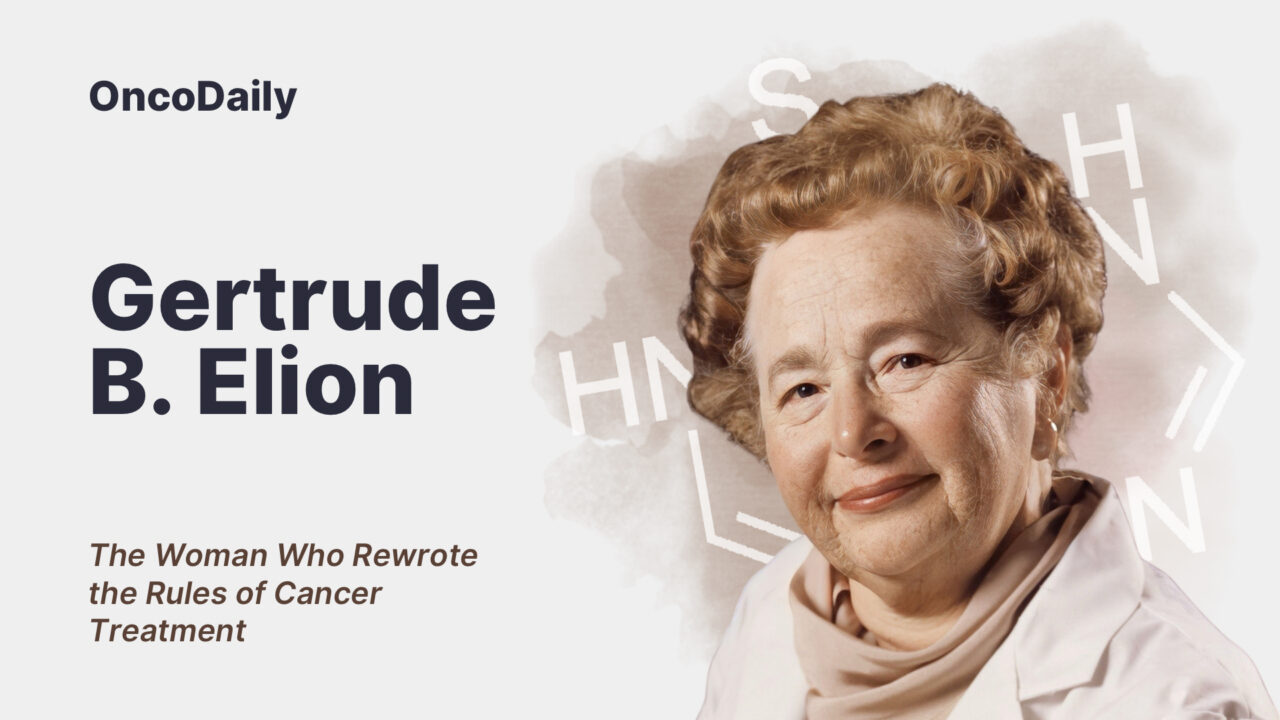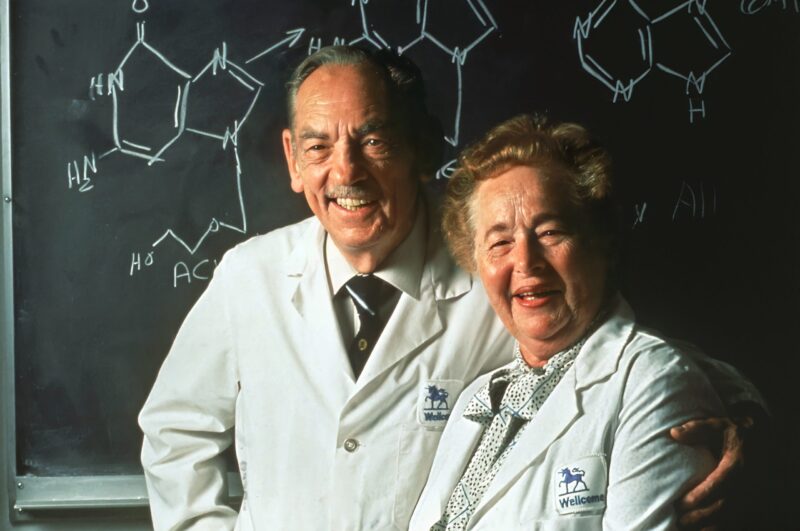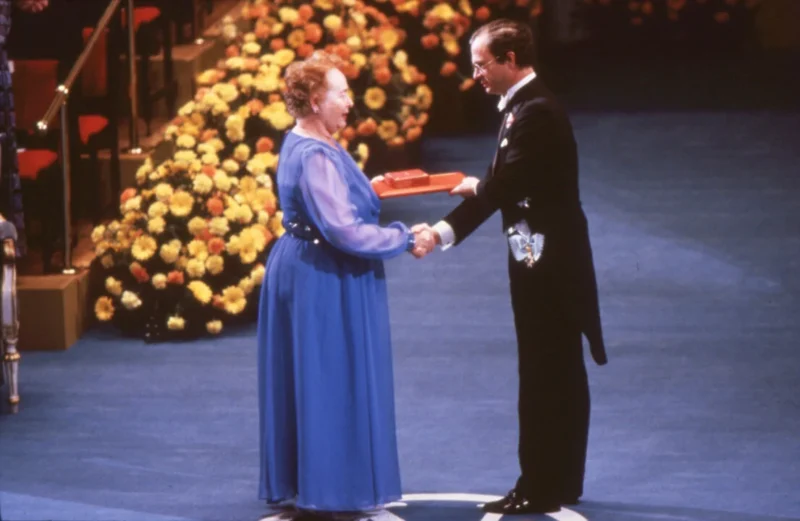
Gertrude B. Elion: The Woman Who Rewrote the Rules of Cancer Treatment
When Gertrude B. Elion entered the world of science, it wasn’t exactly welcoming to women, especially not one without a PhD. But that didn’t stop her from changing the course of modern medicine and reshaping how we treat cancer. With determination, brilliance, and compassion, Elion developed some of the world’s most effective and enduring cancer therapies, earning her the 1988 Nobel Prize in Physiology or Medicine.
A Personal Loss That Sparked a Lifelong Mission
Elion’s interest in science wasn’t abstract. It was heartbreakingly personal. When she was 15, her grandfather died of gastric cancer. That moment left an indelible mark on her. Years later, she would reflect,
“I had no specific bent toward science until my grandfather died of cancer. I decided that nobody should suffer that much.”
That loss lit a fire in her that burned throughout her life.
Despite graduating at the top of her class from Hunter College in 1937, she couldn’t get into a doctoral program, universities weren’t eager to admit women. She took a job wherever she could: as a high school teacher, food chemist (where she tested pickles for acidity), and even as a lab assistant working unpaid just to get experience.
Breaking Through During World War II
With World War II pulling men into the military, laboratories suddenly opened up to women. Elion landed a job at Burroughs Wellcome in 1944, working with George Hitchings. There, she found her scientific home. The pair didn’t follow the traditional trial-and-error method of drug development. Instead, they pioneered a strategy called rational drug design, creating medications based on understanding the biochemistry of cells, especially how cancer cells differ from normal ones.

1988- George Hitchings & Gertrude Elion are given a Nobel Prize in Medicine for their work
A Rational Approach That Changed Chemotherapy
When Gertrude Elion joined George Hitchings’ lab in 1944, they pursued a new kind of research, what they called “rational” drug design. Instead of random screening, they studied the differences in DNA and RNA metabolism between normal cells, cancer cells, and microbes. Elion focused on purines—adenine and guanine, the building blocks of DNA, aiming to find compounds that could selectively block the growth of cancer cells by interfering with DNA synthesis.
Breakthroughs with Purine Analogues
By 1950, Elion and Hitchings had synthesized compounds like diaminopurine and thioguanine, which could hijack the enzymes cancer cells use to make DNA, effectively stopping cancer cell division. This was a major breakthrough, the first drugs designed to target leukemia cells at their metabolic core.
Discovering 6-Mercaptopurine: A Safer, More Effective Chemotherapy
Early chemotherapy drugs were effective, but highly toxic, causing severe side effects. Elion tested over 100 purine compounds and finally developed 6-mercaptopurine (6-MP) by modifying the molecule to reduce toxicity. In animal studies, 6-MP stopped tumor growth and extended survival. When given to children with acute lymphoblastic leukemia, 6-MP induced complete remission for the first time in history, though it was not yet a cure. This discovery paved the way for combining drugs and maintenance therapy protocols that now cure about 80% of children with leukemia.
Expanding the Arsenal: Thioguanine and Azathioprine
Following 6-MP, Gertrude B. Elion introduced thioguanine, used for treating acute myelocytic leukemia and other diseases. She also developed azathioprine (Imuran), an immunosuppressant that revolutionized organ transplantation by preventing rejection and is still used to manage autoimmune conditions and some cancer-related complications.
Beyond Cancer: Broad Medical Impact
Elion’s research extended to infectious diseases as well. She contributed to drugs like pyrimethamine for malaria, trimethoprim (Septra) for bacterial infections, and the antiviral acyclovir (Zovirax), the first effective treatment against herpes viruses. Her pioneering work laid the foundation for antiviral drugs such as AZT for HIV/AIDS.
A Legacy of Scientific Excellence and Compassion
Elion published over 225 scientific papers, continuously advancing the understanding of drug metabolism and treatment. Her rational, targeted approach to drug development not only changed cancer treatment but also transformed therapies for infections and immune disorders. This legacy ultimately earned her, along with Hitchings and James Black, the 1988 Nobel Prize in Physiology or Medicine.
“The Nobel Prize is fine, but the drugs I helped develop are rewards in themselves.”
— Gertrude B. Elion
Humble Genius, Reluctant Celebrity
Even after she won the Nobel Prize, Gertrude B. Elion remained humble. When she got the call, she reportedly said, “Quit your kidding.” She never earned a PhD, but she earned the respect of the entire scientific world. She mentored countless young researchers and later became a research professor at Duke University.
Her story is one of perseverance, brilliance, and quiet rebellion. In a time when women weren’t supposed to lead in science, she let her results speak for themselves—and they saved millions of lives.
“Don’t be afraid of hard work. Nothing worthwhile comes easily.”
Explore Her Legacy
“Good Medicine: Gertrude Elion” – CUNY Laureates series
A short but powerful video exploring her motivations and impact.
Hunter College Honors Gertrude Elion
A tribute to her academic roots and rise to global recognition.
Further Reading
- Nobel Prize Biography
- American Chemical Society Women in Chemistry Profile
- Justine Juillard: This Scientist Patented 45 Drugs and Won a Nobel Prize
Written by Nare Hovhannisyan, MD
-
Challenging the Status Quo in Colorectal Cancer 2024
December 6-8, 2024
-
ESMO 2024 Congress
September 13-17, 2024
-
ASCO Annual Meeting
May 30 - June 4, 2024
-
Yvonne Award 2024
May 31, 2024
-
OncoThon 2024, Online
Feb. 15, 2024
-
Global Summit on War & Cancer 2023, Online
Dec. 14-16, 2023

